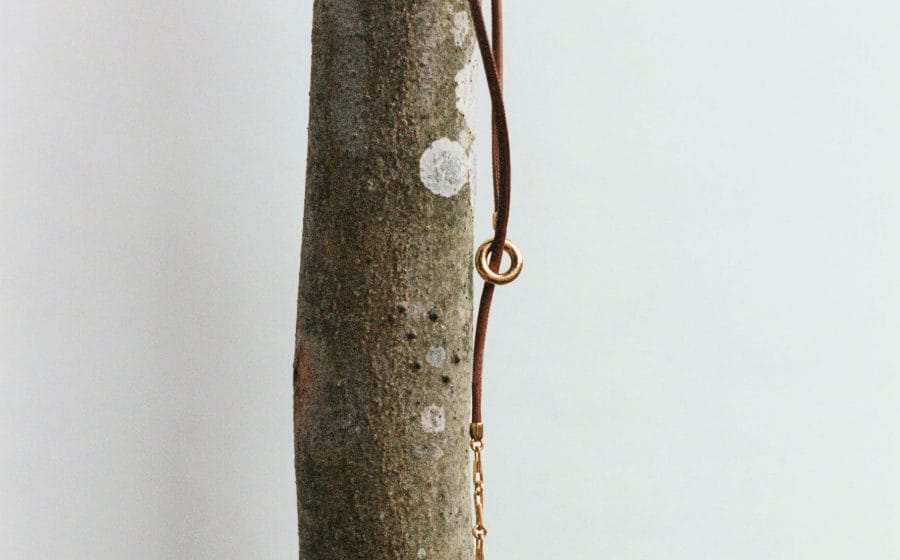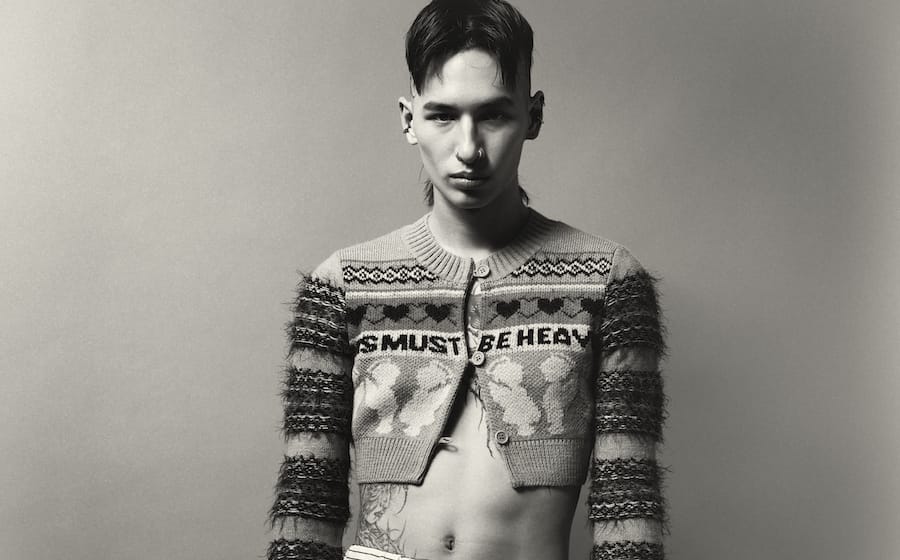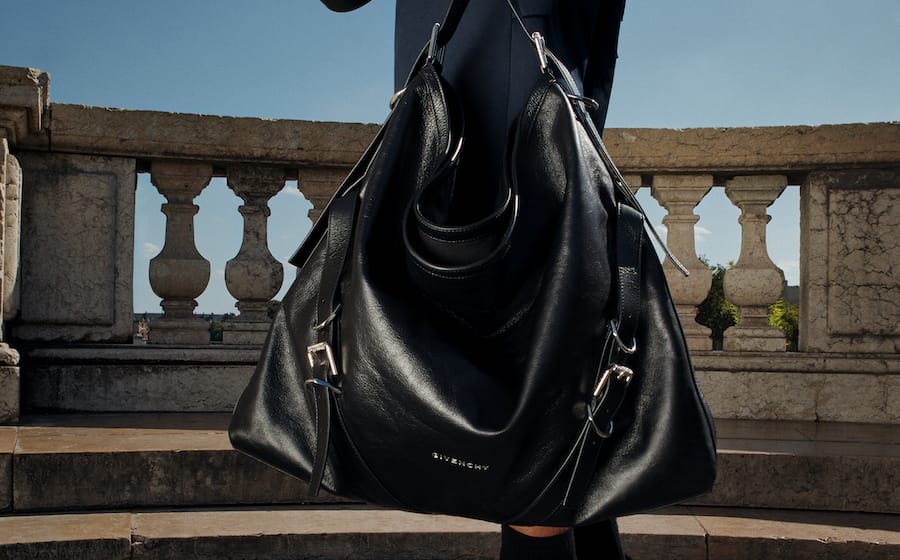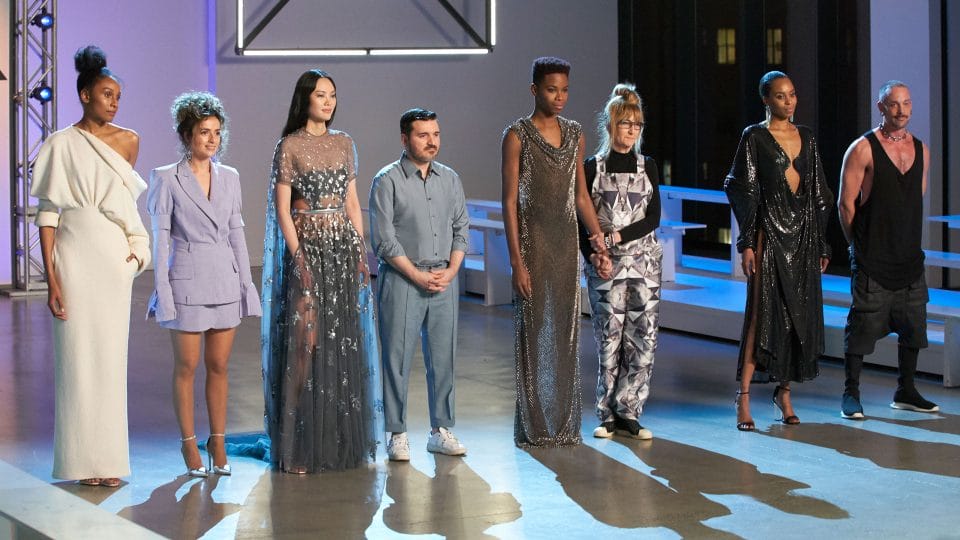
The contestants of Project Runway.
A grand prize of a million dollars to fund your business and a retail opportunity on Amazon. Your participation in Making The Cut — Amazon Prime’s new glitzy fashion design reality show — entails a chance to create a fashion business one could only dream of. Yet, as much as the show challenges former efforts to create an entertaining programme that grooms designers in an industry without consistent support, it continues the charade of fashion’s flaws and outdated mentalities.
For most parts, it’s nothing but just good TV.
_

The contestants of Next In Fashion.
To put it simply, it screams entertainment exaggeration and competition imitation (in most cases, the winner is usually chosen by the producers well before filming begins). Why? As much as it’s impressive to know that an outfit could be sewn to perfection in 48 hours, what truly sets the bar for a designer in a show like Project Runway is their ability to charm audiences through the camera.
Think memorable participants such as Christopher Palu and Christian Siriano, and their journeys to the finale by becoming audience favourites. That characteristic continues to be alarming because it informs people that the industry centres around personalities above all else.
I recount a moment in school when a fellow schoolmate detailed her decision to study fashion. Despite the obvious aspirations of challenging design matter and thought, the honest rationale comes in the form of seeing a fellow local designer on the television.
At first, it comes off as an act of looking up to a role model. As the end of my studies approached, I started to notice a different clause — the idealism of celebrity culture in fashion.
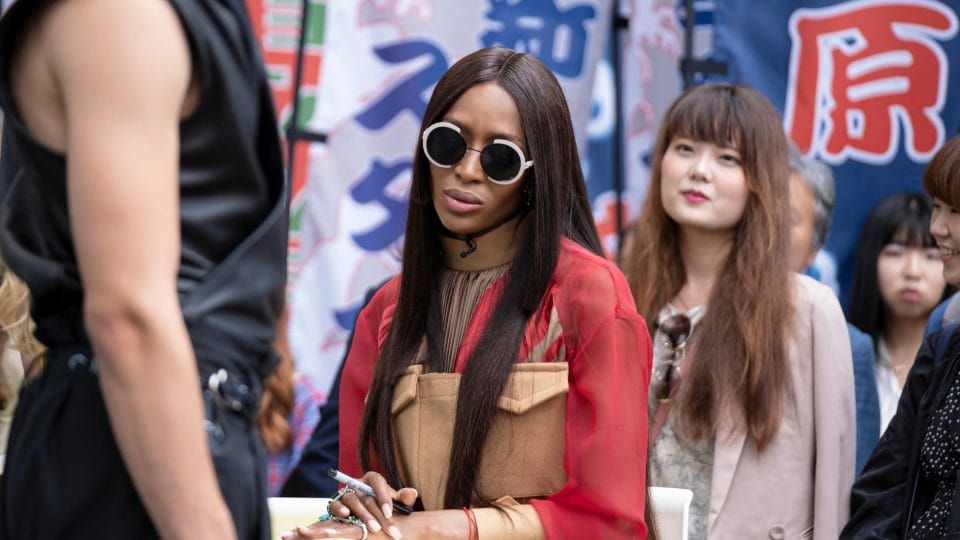
Naomi Campbell judging a challenge in Making The Cut.
What shows like Making The Cut, Project Runway and Next In Fashion does is perpetuate a fantasy that the industry centres around a template of creating a star.
It’s a perception that most, if not all, participants of the industry fall prey to — including myself. What we often leave out of the conversation is how personality and influence trumps a flair for design. You wouldn’t look at Marc Jacobs the same way if he leads his label anonymously and without his sense of humour and wit, and it’s a perception that plagues design schools.
Students often mirror their actions and words with celebrity designers like a mime at a play; all for the promise of being part of the limelight as well.
However, fashion occupies a peculiar position. It is still perceived as something exceptional and out of the norm. It is a space that defies opposition of beauty, glamour, and excess — there’s absolutely no wrong in that.
The issue lies with the sense of hopefulness that creates an unrealistic description of the industry. Within it centres a desire for beauty and glamour, therefore it is not surprising that topics of exploitation, underpayments and burnouts are often unacknowledged within the industry.
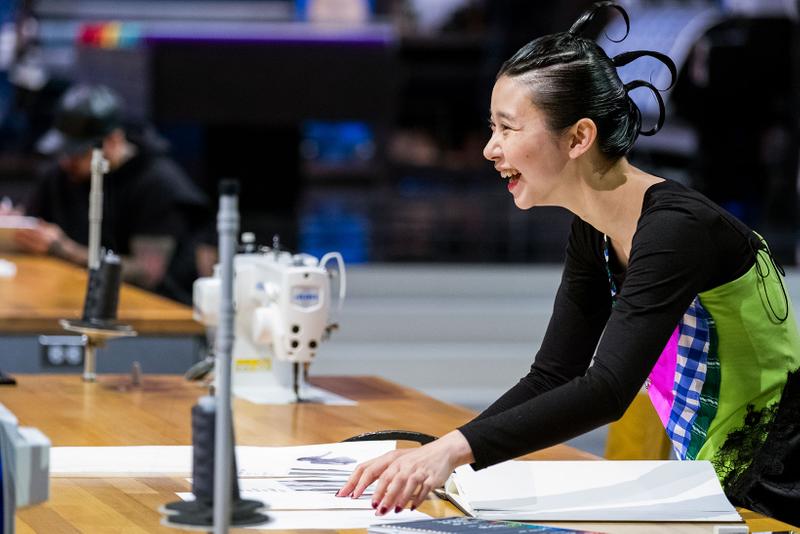
Angel Chen sketching her designs for Next In Fashion.
Unfortunately, no one wants to hear it, because to do so breaks the fantasy of fashion.
Everyone behind the scene understands the functions of desire (i.e. it forms the goal-setting agenda) and yet, we’re all still caught up in it. Each encounter in the scene was a new revelation for me and reaffirms my thoughts.
I too found myself in the same position and with that, I was paralysed by the idea of being liked. It’s the same for everyone else and I believe the exhaustion has started to surface.
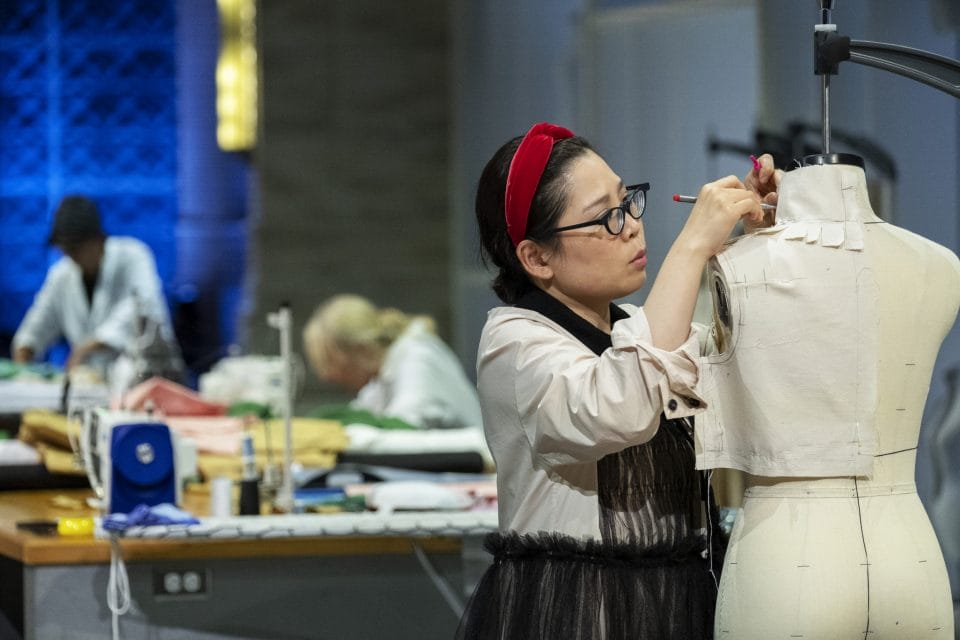
Next In fashion’s show winner, Minju Kim draping a collar.
Most people join fashion not because it’s a career they want, but they want to be part of something that is perceived to be the highest echelon of society.
It’s something that industry leaders ought to change with its portrayal of fashion because what designers today truly need is an ability to be seen without having to fear of being actually seen.

